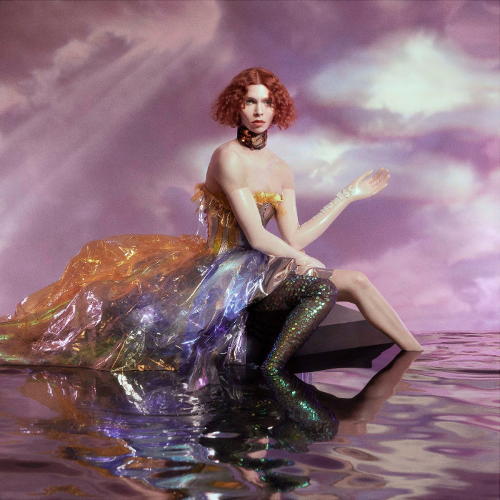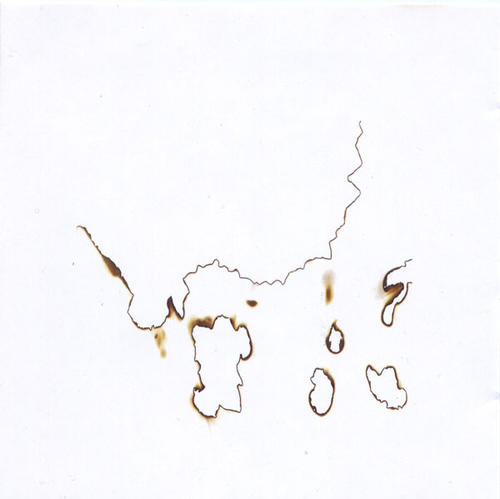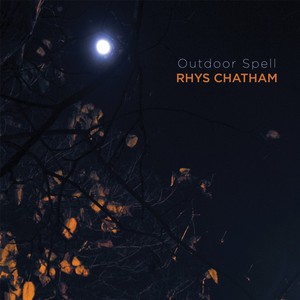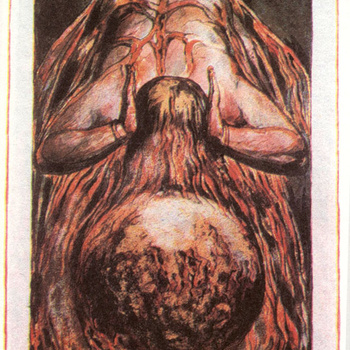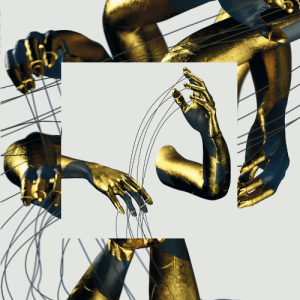 “Tell me the story”, a sibilant voice whispers on the album’s opening track, “i. Sabotage Story (unknot opening)”.
“Tell me the story”, a sibilant voice whispers on the album’s opening track, “i. Sabotage Story (unknot opening)”.
Well, OK; you asked for it. Actually, this should by rights be a review of Kräuter Der Provinz by Datashock. Sadly, though, I was too slow off the mark to bag that onei. Instead, nursing a slight sense of miffage at missing out on the new Bureau B release, I suggested to the editor that he instead send me off on a surprise mission, a special forces reconnaissance deep into an unknown territory. Twirling the ends of his luxuriant moustache and stroking the jewel-collared and genetically-modified Persian cat that seemingly accompanies him everywhere these days, he said that he would ponder my request and let me know. Shortly afterwards, true to his word, up turned String Figures, the new album by Brussels-based vocalist, performer and producer Zoë Mc Pherson.
Having travelled widely, undertaking extensive muso-ethnographic research along a vast continuum of fields from Irish fiddle and Kurdish feminism to Inuit culture and Vodun rhythm, Mc Pherson has synthesised them into an exploration of the disappearance of cultures as they clash with Westernism and virtual spaces. Taking the global practice of string games like Cat’s Cradle – activities that often mix storytelling, chanting and divination with the creation of intricate designs made using one’s fingers (and sometimes those of others) – the album is fundamentally one of duality, exploring the traditional and the contemporary, organic and electronic, audio and visual, history, and the future. Rooted in this duality is also a core theme around string being one of the most ancient, and playful art forms and the seemingly infinite possibilities it offers in terms of shapes, structures, and figures lines up with this as a trans-global art project.
Has such verbosity – mostly culled from accompanying promotional literature and allied sources – made the album sound dull enough yet? I could, if you like, add some more, continuing to burble on about ethno-musical bricolage, or repurposed trans-cultural infomediaries or evenI might add that in a sense, the main theme of the album’s critique of capitalist neo-colonialism is the defining characteristic, and hence the paradigm, of post-semioticist consciousness. A number of theories concerning the role of the writer as participant may be discovered within the work and…we…. can…. we…. can… see… see….. see… see… zee… zzzeeeee… zzzzzzzeee… zzzzzzz……
OK, enough already. If you’re still awake after all that, let’s agree to throw such theoretical and linguistic cōleī in the nearest ditch and say what’s really interesting about this album.ii Which is, happily, that it’s excellent. Really excellent.
But we’re talking Titans of modern music here. The Lindy Effect filter has shown many other such attempts to be briefly-existing efflorescences, good perhaps for one summer on a side stage at WOMAD, but years later truly cringe-inducing in their “eclectic mixture of beats and duduks“. With String Figures, however, Mc Pherson has produced a pulsing, undulating serpent of an album, a woozy global travelogue reminiscent at times of a distaff Cut Hands:
“ii. Deep (prayer)” growls like a pack of hyenas eyeing a wounded wildebeest;
“iv. Komusar (moving)” mixes ritual incantation with irresistible low-end automated propulsion;
“vi. Inouï (and free)” is momentum electronica that could slot seamlessly onto any shelf next to Drew McDowell’s work.
Closing chapter “vii. Transmission (so it shall never be lost)” isn’t thankfully a Joy Division / Patagonian flute mash-up (although, on reflection, that’s not such a bad shout…), but instead trance-like ritual, slightly off-kilter, slightly sinister, like a narcotic numbers station broadcast.Mc Pherson’s vocals are luminous, liminal and probably many other adjectives beginning with l. How nice it is, too, to hear her vocals sung / spoken / chanted in French. If Claude Lévi-Strauss had been given access to Cakewalk SONAR, then Tristes Tropiques might have come out more like this. But, really, forget the verbiage, mine or that of others. String Figures is a wonderful piece of work, both emic and etic, and prodigiously rewarding in both. Assemble a field kit and make your way through it as soon as you can.
-David Solomons-
i I really daren’t say any more about the secret Illuminati-style internal workings of Freq. If I did, then I’d have to kill you.
ii String Figures also links to an allied audio-visual piece by the multimedia visual artist Alessandra Leone. Their very lovely joint promotional video for the album’s first track can be seen accompanying this review.
iii From “Amateur Hour”, the second single from their classic 1974 album Kimono My House.
